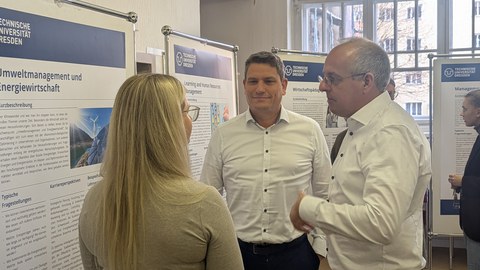Econometrics
Econometrics arose from economics and is concerned with the analysis of economic models and data using statistical methods.
Many economic relationships can be expressed in the form of models which mainly consist of mathematical equations and inequalities. For example, demand for oil is described by an equation depending on its price and the purchaser's income. The task of econometrics is then to analyze such relationships in more detail, test economic theories and draw up forecasts for future development:
- How sharply does the demand for oil fall when its price increases?
- How sharply does the demand for privately owned homes rise when interest rates fall
- What rate of inflation can be expected next year?
The econometrician avails himself of economic statistics surveys and the data or observations that arise thereby. These are then modelled by computer using statistical methods. It is possible to study econometrics as a subject at any large university in Germany with a faculty of economics. Successful completion requires not only basic economic knowledge, but also an understanding of mathematics and a certain facility in using computers. It should be noted that a large percentage of Nobel prizewinners in economics come from the field of econometrics, such as Ragnar Frisch (Norway) and Jan Tinbergen (Netherlands), the first prizewinners in 1969. Other prizewinners include Lawrence R. Klein (USA) in 1980, James J. Heckman (USA) and Daniel L. McFadden (USA) in 2000 and Robert F. Engle (USA) and Clive W. J. Granger (Great Britain) in 2003.









